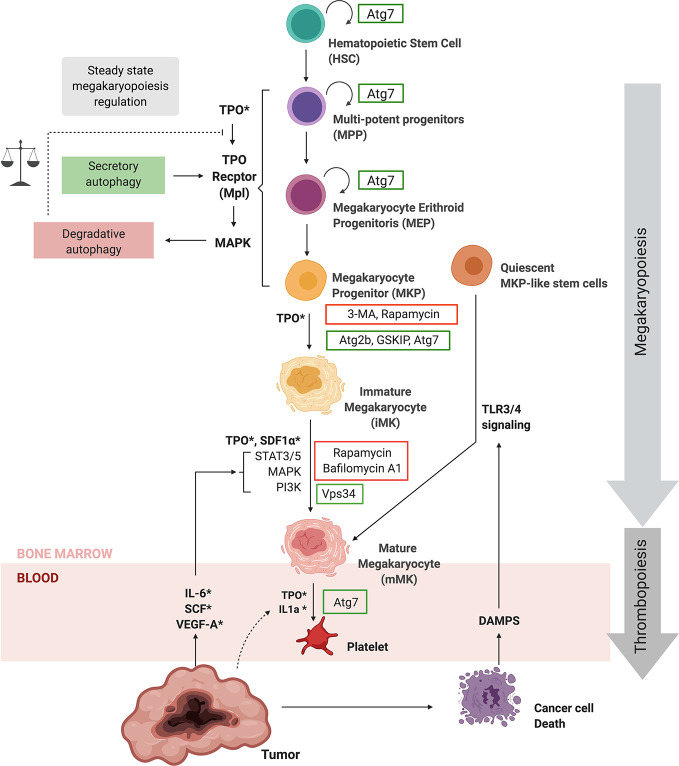Figure 3.
Autophagy regulates megakaryopoiesis and thrombopoiesis. Hematopoietic stem cells give origin to megakaryocytes (MKs) through megakaryopoiesis by a succession lineage commitment steps, followed by a maturation process. TPO is the main growth factor regulating steady-state megakaryopoiesis and thrombopoiesis, which bind to the Thrombopoietin receptor (Mpl). Autophagic regulation of the Thrombopoietin receptor plays a key role in steady-state megakaryopoiesis. ATG7, ATG2B, and GSKIB are necessary for megakaryopoiesis, while BafA1, CQ and rapamycin have an impact at different steps of the differentiation process. Furthermore VPS34 is also necessary for MK maturation. Inflammatory signaling through TLR/NFkB pathways promotes the differentiation of quiescent MKP–like stem cells into megakaryocytes during emergency megakaryopoiesis and thrombopoiesis upon injury. Importantly, cancer increases systemic levels of TPO, IL-1α, IL-6, SCF, VEGF-A, and DAMPs that could not only enhance steady state thrombopoiesis but also emergency megakaryopoiesis and thrombopoiesis. The regulation of autophagy during megakaryopoiesis and thrombopoiesis still requires further investigation. For more information please refer to text. ATG, Autophagy-Related Gene; BafA1, Bafilomycin A1; BECN1, Beclin-1; CQ, Chloroquine; DAMPs, Damage-Associated Molecular Patterns; IL-1α, Interleukin 1 alfa; IL-6, Interleukin 6; MAPK, Mitogen-Activated Protein Kinase; PI3K, Phosphatidylinositol 3-Kinase; STAT, Signal transducer and activator of transcription 3; Thrombopoietin, TPO; VPS, Vacuolar Protein Sorting; 3-MA, 3-methyladenine; SDF-1, stromal cell-derived factor 1.

